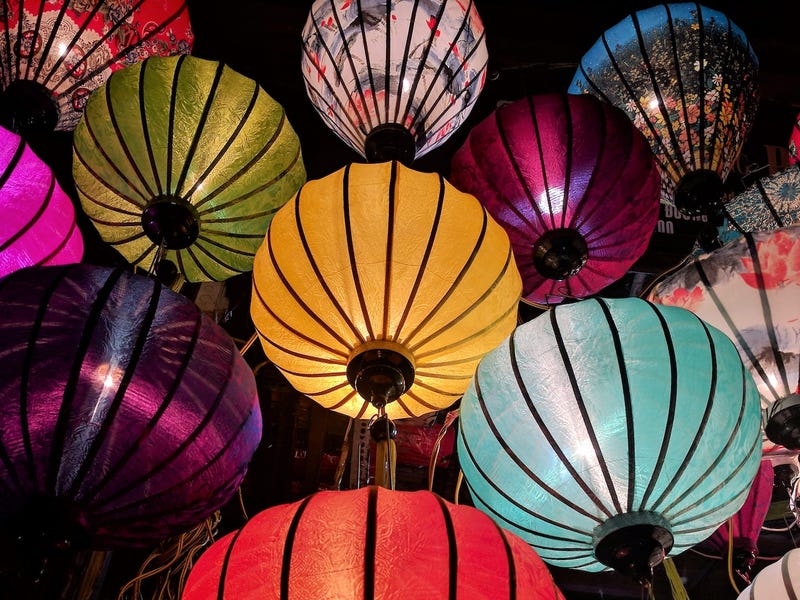
How to tell the time in Chinese: A fun and simple guide
Marco Monroy
Learning to tell the time in Chinese can unlock a whole new world of possibilities.
From asking your friends out to coffee, to double-checking when your Chinese homework is due, being able to speak about and get clarification on the exact time is a must-have skill. It can even be one of the most important skills for international business people, as Chinese is the second-most important language for international business.
Beyond that, the Chinese language also employs many time-related expressions, like time adverbs and chengyu. Learning some time-related vocabulary in Chinese will help you catch more of these references and speak more like a local.
So, whether you’re still working your way through the first few of your online Mandarin classes or are looking to impress some of your Chinese colleagues, we’ll cover some excellent ways to tell the time in Chinese below.
There’s no time to waste, so let’s get started!
Table of contents
- Telling time in Chinese
- How to say the time of day in Chinese
- Chinese time adverbs
- Other time-related phrases in Chinese
- Fun facts about time in Mandarin Chinese

Telling time in Chinese
Before you start working on the time-related vocabulary and expressions, you should already be familiar with some of the basic building blocks of Chinese. You’ll definitely want to know some Chinese numbers as well as the days, months, and years in Chinese. Once you’ve got those down, learning how to tell the time in Chinese is just a matter of learning a few structures and getting comfortable with a couple of measure words!
How to tell the time on the hour
Telling the time on the hour in Chinese is extremely easy. All you need to do is add the measure word 点 (diǎn) after the number of the hour you are trying to say. This is similar to saying “o’clock” in English, when the exact time may or may not be the exact hour. If you want to emphasize that it’s a sharp hour, you can add 整 (zhěng) after the 点 (diǎn).
| Time | Chinese | Pinyin | Pronunciation |
| 1:00 | 一点 | yī diǎn | i dean |
| 2:00 | 两点 | liǎng diǎn | leang dean |
| 3:00 | 三点 | sān diǎn | san dean |
| 4:00 | 四点 | sì diǎn | syh dean |
| 5:00 | 五点 | wǔ diǎn | wuu dean |
| 6:00 | 六点 | liù diǎn | liow dean |
| 7:00 | 七点 | qī diǎn | chi dean |
| 8:00 | 八点 | bā diǎn | ba dean |
| 9:00 | 九点 | jiǔ diǎn | jeou dean |
| 10:00 | 十点 | shí diǎn | shyr dean |
| 11:00 | 十一点 | shí yī diǎn | shyr i dean |
| 12:00 | 十二点 | shí’èr diǎn | shyr ell dean |
Alternatively, if you want to talk about hours as a unit of time, you can use the noun 小时 (xiǎo shí), which means hour, along with the measure word 个 (gè). While using the measure word is pretty common, it is also optional, so you don’t always have to use it. Here are some examples for talking about hours as units of time both with and without the measure word 个 (gè):
| Time | Chinese | Pinyin | Pronunciation |
| 1 hour | 一个小时 | yī gè xiǎo shí | i geh sheau shyr |
| 2 hours | 两个小时 | liǎng gè xiǎo shí | leang geh sheau shyr |
| 8 hours | 八小时 | bā xiǎo shí | ba sheau shyr |
| 10 hours | 十小时 | shí gè xiǎo shí | shyr sheau shyr |
| 24 hours | 二十四小时 | èr shí sì xiǎo shí | ell shyr syh sheau shyr |
How to tell exact minutes in Chinese
To tell the time with precise minutes, all you need to do is add the number of minutes immediately after the 点 (diǎn) as described in the previous section. You may choose to emphasize the minutes by adding 分 (fēn) after the number of minutes, which is short for 分钟 (fēn zhōng), the Chinese word for minutes. However, most people omit this as it’s implied that you’re referring to the minutes. Here are a few examples:
| Time | Chinese | Pinyin | Pronunciation |
| 1:07 | 一点零七(分) | yī diǎn líng qī (fēn) | i dean ling chi (fen) |
| 1:12 | 一点十二(分) | yī diǎn shí'èr (fēn) | i dean shyr ell (fen) |
| 1:30 | 一点三十(分) | yī diǎn sān shí (fēn) | i dean san shyr (fen) |
| 1:45 | 一点四十五(分) | yī diǎn sì shí wǔ (fēn) | i dean syh shyr wuu (fen) |
| 1:57 | 一点五十七(分) | yī diǎn wǔ shí qī (fēn) | i dean wuu shyr chi (fen) |
Now that you know how to say hours and minutes in Chinese, you can use them as time measurements. Here are a few examples of how you can talk about one minute, fifteen minutes, an hour and forty-five minutes, and more!
| Time | Chinese | Pinyin | Pronunciation |
| 1 minute | 一分钟 | yī fēn zhōng | i fen jong |
| 15 minutes | 十五分钟 | shí wǔ fēn zhōng | shyr wuu fen jong |
| 57 minutes | 五十七分钟 | wǔ shí qī fēn zhōng | wuu shyr chi fen jong |
| 1 hour and 45 minutes | 一小时四十五分 | yī xiǎo shí sì shí wǔ fēn | i sheau shyr syh shyr wuu fen |
| 2 hours and 12 minutes | 两小时十二分(钟) | liǎng xiǎo shí shí'èr fēn (zhōng) | leang sheau shyr shyr (fen) |
How to say half past, quarter past, and quarter to
Just like English, Chinese can also divide the hours in halves and quarters to tell the time. While using these forms to tell time isn’t necessary (you can stick to 15 and 30 minutes if you’d like!), you should still be aware of them for when you hear them in the wild. One thing to note is that, although you can also say “it’s a quarter to three” like we do in English, this is less common in Chinese, as simply saying “it’s two and three quarters” sounds more natural. Here are some examples:
| Time | Chinese | Pinyin | Pronunciation |
| 1:15 | 一点一刻 | yī diǎn yí kè | i dean i keh |
| 2:15 | 两点一刻 | liǎng diǎn yí kè | leang dean yi keh |
| 2:45 | 两点三刻 | liǎng diǎn sān kè | leang dean san keh |
| 2:45 | 三点差一刻 | sān diǎn chà yí kè | san dean chah yi keh |
| 7:30 | 七点半 | qī diǎn bàn | chi dean bann |
| 10:45 | 十点三刻 | shí diǎn sān kè | shyr dean san keh |
And if you want to talk about quarters or half hours as a measure of time, you can also do that by following the structure below:
| Time | Chinese | Pinyin | Pronunciation |
| 15 minutes | 一刻钟 | yī kè zhōng | i keh jong |
| Half an hour | 半小时 | bàn xiǎo shí | bann sheau shyr |
| 45 minutes | 三刻钟 | sān kè zhōng | san keh jong |
| 1 hour and a half | 一个半小时 | yī gè bàn xiǎo shí | i geh bann sheau shyr |
How to ask for the time in Chinese?
Once you’ve gotten a handle on some sentences to tell the time, it’s time to learn how to ask for the time in Chinese. Below, we’ll cover a few ways to ask what the time is with varying levels of formality to help you find the right one. Plus, with remote work being now more common than ever, we’ve also included a way to ask someone what timezone they’re in!

| English | Chinese | Pinyin | Pronunciation | Notes |
| What time is it? | 几点了? | jǐ diǎn le? | jii dean lhe | Casual way to ask for the time. |
| What time is it right now? | 现在几点? | xiàn zài jǐ diǎn? | shiann tzay jii dean | Used when you want to know the exact time. |
| What time is it right now? | 现在几点钟? | xiàn zài jǐ diǎn zhōng? | shiann tzay jii dean jong | Longer form of the previous question. |
| Excuse me, do you know the time right now? | 请问,你知道现在的时间吗? | qǐng wèn nǐ zhī dào xiàn zài de shí jiān ma? | chiing wenn nii jy daw shiann tzay .de shyr jian mha | More polite way of asking someone if they know the time. |
| What’s your timezone? | 你在哪个时区? | nǐ zài nǎ gè shí qū? | nii tzay naa geh shyr chiu | Helpful way to ask someone for their timezone. |
How to say the time of day in Chinese
Often times, we’ll want to discuss things that happened or will happen in a particular time of the day without going into too much detail. Maybe you have plans this evening, but don’t need to be specific about them. Perhaps you want to know what your friend is planning tomorrow morning or if they’re free in the afternoon to study. For those scenarios, Chinese has a few words with no precise time boundaries to help you make plans with broad strokes.
| English | Chinese | Pinyin | Pronunciation | Time period |
| Morning (early) | 早上 | zǎo shàng | tzao shang | From dawn until around 9:00 a.m. |
| Morning (late) | 上午 | shàng wǔ | shanq wuu | From around 9:00 a.m. until around 11:00 a.m. |
| Noon | 中午 | zhōng wǔ | jong wuu | From around 11:00 a.m. until around 1:00 p.m. |
| Afternoon | 下午 | xià wǔ | shiah wuu | From around 1:00 p.m. until around 8:00 p.m. |
| Evening (early) | 傍晚 | bàng wǎn | banq woan | From around 6:00 p.m. to around 9:00 p.m. |
| Evening | 晚上 | wǎn shàng | woan shang | From around 8:00 p.m. to around 11:00 p.m. |
| Midnight | 半夜 | bàn yè | bann yeh | From around 11:00 p.m. until around 1:00 a.m. |
| Evening (late) | 深夜 | shēn yè | shen yeh | From around 1:00 a.m. until around 3:00 a.m. |
| Very early morning | 凌晨 | líng chén | ling chern | From around 3:00 a.m. until dawn |
Now, here are some helpful sentences using some of the time of day vocabulary we covered above. Can you think of a few more examples using the vocabulary above?
| English | Chinese | Pinyin | Pronunciation |
| 3 o’clock in the morning | 凌晨三点 | líng chén sān diǎn | ling chern san dean |
| 10 o’clock in the morning | 早上十点 | zǎo shang shí diǎn | tzao shang shyr dean |
| 4 o’clock in the afternoon | 下午四点 | xià wǔ sì diǎn | shiah wuu syh dean |
| Noon | 中午十二点 | zhōng wǔ shí'èr diǎn | jong wuu shyr ell dean |
| 7 o’clock in the evening | 傍晚七点 | bàng wǎn qī diǎn | banq woan chi dean |
| 11 o’clock at night | 晚上十一点 | wǎn shàng shí yī diǎn | woan shanq shyr i dean |
| Midnight | 半夜十二点 | bàn yè shí'èr diǎn | bann yeh shyr ell dean |
| 10 o’clock in the morning, today | 今天早上十点 | jīn tiān zǎo shang shí diǎn | jin tian tzao shang shyr dean |
| 10 o’clock in the morning on Monday | 星期一上午十点 | xīng qī yī shàng wǔ shí diǎn | shing chyi i shanq wuu shyr dean |
Chinese time adverbs
Time adverbs can help us talk about time without explicitly mentioning it. Sometimes you need to do something immediately, or want to ask someone if they’re free later, or if they’re almost done with their homework. Whatever the case, these adverbs help us talk about time indirectly in everyday conversations. Here are a few Chinese adverbs of time that you should be familiar with:

| English | Chinese | Pinyin | Pronunciation |
| Right now | 现在 | xiàn zài | shiann tzay |
| Currently | 目前 | mù qián | muh chyan |
| At the same time | 同时 | tóng shí | torng shyr |
| Before | 之前 | zhī qián | jy chyan |
| After | 之后 | zhī hòu | jy how |
| Very soon | 很快 | hěn kuài | heen kuay |
| Immediately | 立刻 | lì kè | lih keh |
| Right away | 马上 | mǎ shàng | maa shanq |
| Almost | 差不多 | chà bu duō | chah bu duo |
| In a little while | 过一会儿 | guò yī huìr | guoh i huey |
| For a long time | 很久 | hěn jiǔ | heen jeou |
| Any time | 任何时候 | rèn hé shí hou | renn her shyr hou |
| As soon as possible | 尽快 | jìn kuài | jinn kuay |
| Just now | 刚才 | gāng cái | gang tsair |
Other time-related phrases in Chinese
If you’re pressed for time and just want to learn a few short and helpful phrases, then boy oh boy do we have the right cheat sheet for you! The table below has a handful of super short and super helpful time-related phrases in Chinese that you can use in your daily life.
| English | Chinese | Pinyin | Pronunciation |
| Hurry up | 快点吧 | kuài diǎn ba | kuay dean ba |
| Hurry up! | 赶紧的! | gǎn jǐn de! | gaan jiin de |
| I'm late | 我迟到了 | wǒ chí dào le | woo chyr daw lhe |
| Please be early | 请早点到 | qǐng zǎo diǎn dào | chiing tzao dean daw |
| Please be on time | 请准时到 | qǐng zhǔn shí dào | chiing joen shyr daw |
| Don’t be late! | 不要迟到! | bù yào chí dào! | buh yaw chyr daw |
Fun facts about time in Mandarin Chinese
How ancient Chinese measure time - 12 Shi Chen
If you’re interested in astrology, then you probably already know that your time of birth can change your birth chart, as the positions of the planets change by the second. However, did you know that Chinese zodiacs also change by the hour?
The 十二时辰 (shí èr shí chén) are two-hour periods that each represent a different animal in the Chinese zodiac. The time of the day you were born influences your emotions and personality, as does the day, month, and year. Which Chinese hour zodiac are you?
| Time | Animal | Chinese name | Pinyin | Pronunciation |
| 11 p.m. to 1 a.m. | Rat | 子时 | zǐ shí | tzyy shyr |
| 1 a.m. to 3 a.m. | Ox | 丑时 | chǒu shí | choou shyr |
| 3 a.m. to 5 a.m. | Tiger | 寅时 | yín shí | yn shyr |
| 5 a.m. to 7 a.m. | Rabbit | 卯时 | mǎo shí | mao shyr |
| 7 a.m. to 9 a.m. | Dragon | 辰时 | chén shí | chern shyr |
| 9 a.m. to 11 a.m. | Snake | 巳时 | sì shí | syh shyr |
| 11 a.m. to 1 p.m. | Horse | 午时 | wǔ shí | wuu shyr |
| 1 p.m. to 3 p.m. | Sheep | 未时 | wèi shí | wey shyr |
| 3 p.m. to 5 p.m. | Monkey | 申时 | shēn shí | shen shyr |
| 5 p.m. to 7 p.m. | Rooster | 酉时 | yǒu shí | yeou shyr |
| 7 p.m. to 9 p.m. | Dog | 戌时 | xū shí | shiu shyr |
| 9 p.m. to 11 p.m. | Pig | 亥时 | hài shí | hay shyr |
Chinese proverbs on time
If you’ve been studying Chinese for a while now, you know that the Chengyu and many other forms of idioms are incredibly common in everyday speak. Virtually all topics have specific Chengyu and idioms, which impart little nuggets of Chinese wisdom and history in just a few words. Here are some of the most important proverbs about time in Chinese.

| English | Chinese | Pinyin | Pronunciation |
| Time and tide wait for no man | 时不待我 | shí bù dāi wǒ | shyr buh dai woo |
| Time flies like an arrow, the sun and moon shuttle back and forth | 光阴似箭,日月如梭 | guāng yīn sì jiàn, rì yuè rú suō | guang in syh jiann ryh yueh ru suo |
| An inch of time is an inch of gold, but an inch of time cannot be purchased for an inch of gold | 一寸光阴一寸金,寸金难买寸光阴 | yī cùn guāng yīn yī cùn jīn, cùn jīn nán mǎi cùn guāng yīn | i tsuenn guang in i tsuenn jin tsuenn jin nan mae tsuenn guang in |
| Time is money | 时间就是金钱 | shí jiān jiù shì jīn qián | shyr jian jiow shyh jin chyan |
| Never too old to learn, never too late to turn | 亡羊补牢,为时未晚 | wáng yáng bǔ láo, wéi shí weì wǎn | wang yang buu lau wei shyr wey woan |
| Life is too short | 人生苦短 | rén shēng kǔ duǎn | ren sheng kuu doan |
| Lost time cannot be recuperated | 时光流逝,不可复得 | shí guāng liú shì, bù kě fù dé | shyr guang liou shyh buh kee fuh der |
| If you live your life waiting for tomorrow, it will never come | 我生待明日,万事成蹉跎 | wǒ shēng dài míng rì, wàn shì chéng cuō tuó | woo sheng day ming ryh wann shyh cherng tsuo two |
No time like today to learn how to tell the time
As you now know, learning to tell the time in Mandarin isn’t hard once you know the numbers, so why not tackle this milestone today? Soon, you’ll be able to ask your friends for the time, talk about time periods, and make more effective plans for study dates and business meetings!
If you can’t count the time until you pick up your next Mandarin skill, then head over to our Chinese blog! We routinely publish helpful and easy-to-read guides to help you learn different parts about Chinese, like our guide to all Chinese radicals and our expert tips to learning Chinese characters!


